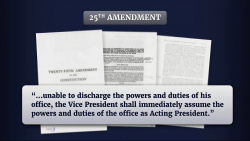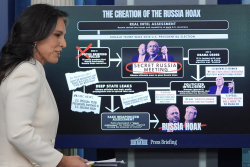While there are currently no plans for Austria to seek membership in NATO, the foundation for joining the alliance may already be in place.
Austria’s constitutional neutrality was established in 1955. It remained in place throughout the Cold War, a period marked by two distinct military alliances and a very real threat of war between them. That constitutional neutrality, which blocks the Central European nation from joining a military alliance or hosting foreign military bases, was one of the conditions for the withdrawal of Soviet occupying forces after the Second World War.
While public support for continued neutrality remains strong, the tides are shifting. Four years ago, it would have seemed unlikely that other avowedly neutral nations such as Sweden and Finland would seek membership in NATO. However, Russia’s unprovoked invasion of Ukraine in February 2022 disrupted the geopolitical situation across Europe, leading Finland to join the alliance in 2023 and Sweden in 2024. There are now calls from some in Austria to hold an “open debate” on whether neutrality is the path forward for Vienna.
Austrian Foreign Minister Beate Meinl-Reisinger told Germany’s Die Welt newspaper in an exclusive interview that her nation’s long-standing neutrality may not be enough to guarantee national security.
“Austria is protected by investment in its own defense capabilities and in its partnerships,” Meinl-Reisinger explained. “We cannot simply sit back and say that as long as we harm no one, no one will harm us. That would be naïve. The world has changed.”
Austria Could Join NATO—but Would Need to End Its Neutrality
There are currently no plans for Vienna to seek membership in NATO, but the foundation may already be in place. Meinl-Reisinger noted that the strict interpretation of Austrian neutrality has already shifted somewhat, with Austria joining the European Union (EU) in 1995. In the three decades since, Vienna has made further contributions to European security, including its participation in peacekeeping missions. Russia’s war in Ukraine, which was widely condemned as an unprovoked act of aggression in Austria, has also been a significant factor in encouraging pro-NATO sentiment.
However, the current stance of the United States may further push Austria away from its neutral stance.
“Trump handed Putin Crimea and several eastern regions on a silver platter, and even ruled out NATO membership for Ukraine. And what does Putin do? He continues his war of destruction,” Meinl-Reisinger emphasized.
Sweden and Finland Show Austria a Path to NATO Membership
Austria would not be the first country to join NATO after a long period of neutrality. Sweden, which joined the alliance in 2024, had previously not been engaged in any European alliance or conflict since the Napoleonic Wars in the early 19th century. Stockholm avoided hostilities in both World Wars, although it made preparations to fight Nazi Germany and provided intelligence to the Allies, while also assisting in the training of Danish and Norwegian soldiers. By contrast, Finland was a major belligerent in the Second World War, fighting alongside Germany against the Soviet Union but turning on Germany at the war’s end.
Throughout the Cold War, both Finland and Sweden maintained policies of neutrality while preparing for potential conflict with the Soviet Union.
However, the situation in Austria is much different. The Austro-Hungarian Empire collapsed in 1918, and Austria was later “unified” with Nazi Germany following the Anschluss in 1938. After the end of World War II, Austria was occupied and divided into four sectors by the four major Allied Powers. After the four powers withdrew in 1955, it remained neutral throughout the Cold War, but has also been a member of NATO’s Partnership for Peace (PfP) program since 1995.
Russia Opposes NATO Expansion
A common argument circulated by Russia and its supporters is that the Kremlin was forced to invade Ukraine due to its anti-Russian government, allegedly aligned with neo-Nazis. Another common Russian allegation is that the West promised that it would not expand NATO eastward expansion after the end of the Cold War.
In reality, there was no such promise. Moreover, instead of halting such expansion, Russia’s unprovoked invasion ironically led the neutral nations of Finland and Sweden to seek NATO membership for protection. Austria might follow suit: every missile and drone strike against Ukraine serves as a reminder that the Kremlin may say one thing while doing another.
In addition to driving the neutrals to NATO, Russia’s increased aggression has already led to Estonia, Latvia, Lithuania, and Poland to withdraw from the Ottawa Convention, which “prohibits the use, stockpiling, production, and transfer of anti-personnel landmines (APLs).” Those NATO members have sought to fortify their borders with Russia, including through the deployment of such mines.
Russia may feel threatened by NATO and isolated in the world—but, as Meinl-Reisinger puts it, “it would be naïve” to believe Moscow is not to blame.
About the Author: Peter Suciu
Peter Suciu has contributed over 3,200 published pieces to more than four dozen magazines and websites over a thirty-year career in journalism. He regularly writes about military hardware, firearms history, cybersecurity, politics, and international affairs. Peter is also a Contributing Writer for Forbes and Clearance Jobs. He is based in Michigan. You can follow him on Twitter: @PeterSuciu. You can email the author: [email protected].
Image: Shutterstock / In Green.
















